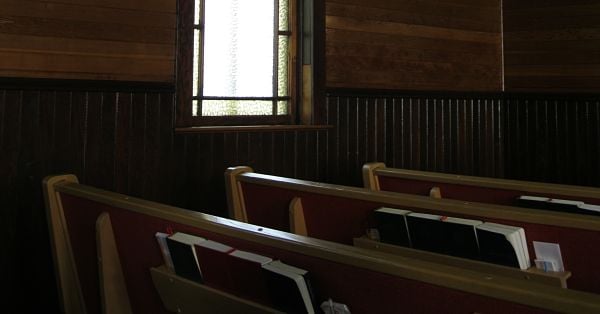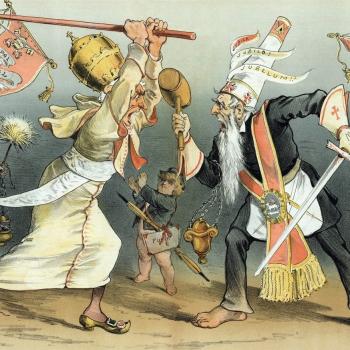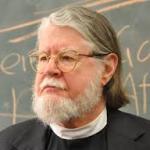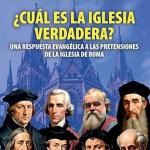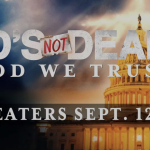How American (White) Evangelicalism Has Changed
I have lived a long life “in the thick” of white American evangelical Christianity. I won’t here lay out all my bona fides. If you doubt them, look me up on the internet. I can legitimately claim to be just about as knowledgeable about white American evangelical Christianity as anyone.
One thing I am both blessed and cursed with is a good long-term memory. I remember the churches I grew up in very well. I remember the Christian family I grew up in very well. (My father was a pastor for over fifty years; my uncle was president of our evangelical denomination for twenty-five years.) I remember the many parachurch organizations that brough white (and some non-white) American evangelicals together across denominational boundaries (e.g., Youth for Christ) and I remember the many evangelical movements that came and went from the 1950s through the end of the twentieth century (and beyond).
As I look back on (mostly white) American evangelical Christianity from this vantage point, it’s difficult to recognize today’s evangelical Christianity as continuous with that of the 1950s and 1960s. And I am very familiar with what it was like before I was born. It has changed so dramatically that I sometimes wonder if it’s the same thing at all.
*Sidebar: The opinions expressed here are my own (or those of the guest writer); I do not speak for any other person, group or organization; nor do I imply that the opinions expressed here reflect those of any other person, group or organization unless I say so specifically. Before commenting read the entire post and the “Note to commenters” at its end.*
Here I want to focus on the good things that I think have been lost. We have lost and forgotten many aspects that made us distinct—as a type of Christianity with much to offer other Christians and the secular world.
First, we sang. We all sang. We sang a lot. There were occasional concerts led by gospel singing groups, but those were not “us.” “We” sang in church and in revivals and in conventions and conferences. We sang in youth meetings. We had Christian youth singing contests. (I sang in a trio when I was fourteen and fifteen years old. We almost “made it” to the national convention.) Now, most of the evangelical churches I visit don’t sing. The worship band sings. The congregation barely sings. We sang meaningful hymns of many kinds—testimony hymns, hymns of aspiration, hymns of praise, hymns of invitation to repent and accept Christ. Our “song services” were rich and thick and often loud. We had choirs and choruses that traveled and sang in other churches and theirs came to us. Singing the gospel was essential to who we were as a people.
Second, we testified. We learned to witness in special classes. We carried gospel tracts with us and handed them out. We spoke to our friends, neighbors, co-workers, fellow students and relatives about Jesus Christ and the joy and peace that comes with knowing him as savior and lord. We stumbled at this, but we kept going and tried to do better. But if anyone had come among us and said “Someday witnessing will go away” we would not have believed him. Or we would have said “That will be the day evangelical Christianity dies.”
Third, we read and memorized scripture. We, the youths of evangelical churches, had “Bible quizzes” in contest style. We had “sword drills” in Sunday School in which we were rewarded for being the first to find a passage in the Bible. We were rewarded publicly in church for reading the Bible all the way through and that was expected of every child by the time he or she was an adolescent. We could say all the books of the Bible in order quickly. We knew our Bibles.
Fourth, we spoke “the language of Zion” among ourselves using terms such as “converted,” “backslidden,” “sanctified,” “born again,” “filled with the Spirit,” “heavenly home,” “second coming (of Jesus),” etc. We had, for better or worse, a rich and thick subculture saturated with biblical concepts and terms and we knew from an early age what they meant. The language of Zion was often spoken in “testimony services”—usually portions of a Sunday evening or Wednesday evening worship service or Bible study. People stood to tell what God was doing in their lives. When we sat down to eat together in the church basement or fellowship hall people talked about God more than sports or politics.
Fifth, we looked forward to heaven and eschewed “worldly things.” “Worldly” did not mean everything of this earth—God’s good creation. We enjoyed God’s good creation and we cared for the poor and the sick. (We didn’t have political power or want it; we supported charities such as the Salvation Army and the Union Gospel Mission.) “Worldly” meant everything that was contrary to a life devoted to God’s will—sex-saturated entertainment, sex outside of marriage, alcohol, tobacco, dancing (except perhaps folk dancing), pornography (and anything that came close to it), etc. We were “separated” from that side of “the world;” we were in the world but not of it. Was this legalism? Sure, it often went that far. But I recall being told many times that the reason for our separation from “the world” was gratitude to God and desire to be like him and live according to his will, not in order to be saved or even maintain our salvation. Virtually none of us were rich or powerful; we were mostly “common people” in terms of social status—middle class at most. Many of us had no financial security including health insurance. Many of us were sick much of the time. We talked and sang about heaven including about “rewards” to be received from God for service rendered in this life—and then given back (“casting crowns at Jesus’s feet”).
Sixth, we looked to God for guidance. We were encouraged and taught to pray for God’s daily guidance with regard to: vocation and job, education, marriage, and everything else that mattered. We believed that God would guide us if we relied on him. God told me when I was thirteen years old who my life’s partner in marriage would be. She was almost three years older. I told her. She laughed. I waited. We’ve been married forty-seven years. Our older saints could truly say to us who were younger “Jesus led me all the way.” We heard and gained spiritual encouragement and hope and strength for the long-haul (a long faithfulness in the same direction).
Seventh, we were expected to have “daily devotions” on our own and “family devotions” daily together with our nuclear families. Almost every evangelical family had a “promise box” in the kitchen. We would take turns at dinner pulling a “card” from the promise box and reading it out loud to the family. On one side would be a scripture passage and on the other side would be a spiritual cliché of some kind. Then usually (not always) the father would pray over the meal. That was minimal “family devotions.” Many were longer and more intense. We all had Sunday School quarterlies, booklets that we worked on for the coming Sunday. The Sunday School teacher would record who brought their Sunday School quarterly and Bible. Pins or medals were given out at least once annually—to reward not only attendance but also completion of assignments in the Sunday School quarterlies. Every Saturday evening we would hear from one parent or another “Have you finished your quarterly for tomorrow morning?” If not, “turn off the TV and go do it.”
Eighth, the pastor and/or deacons and/or elders of the church watched over the congregation. If a member or frequent attender missed two Sundays in a row, someone in leadership of the congregation would “call on” them—at home or in the hospital or even at their place of work. If someone in the congregation “slipped into sin,” someone in spiritual leadership (this was usually an “elder”) would “visit” them to discuss the situation, pray with them, and talk with them about the Lord’s Supper and whether they should participate in it that month or the next. If a member or frequent attender lost their job or a loved one to death, someone in spiritual leadership would visit them and ask how the church could help them through “this difficult time.” Always, always they would pray with them and often offer them spiritual counseling and even material help (usually not money but groceries, hot meals, clothes, help with the rent—given directly to the landlord).
Ninth, all of life revolved around Christianity-meaning Jesus Christ, the gospel, the Bible, the church community, evangelism and missions, and spiritual growth. And there was no such thing as “Lone Ranger Christianity”—at least not so far as “we” were concerned. The church was the extended family of every true Christian.
Finally, tenth, we had our own heroes and celebrities. They were not the same as “the world’s.” For better or worse, we looked up to Billy Graham and Bill Bright and lesser-known evangelists, missionaries, spiritual writers and speakers. We read and watched films about great missionaries such as Nate Saint and Jim Elliot. One of the first books I ever read was Through Gates of Splendor about the four missionaries killed by indigenous tribesmen in Ecuador. The movie made from the book was one of the first films I saw. (Our particular tribe of evangelicals did not attend movies in movie theaters, but we saw many Christian films in church on Sunday evenings and at Youth for Christ “rallies.” Speaking of our particular tribe of evangelicals—the first and for a long time only “comic books” I had to read were those about a particular evangelist!)
My point is that American evangelical Christianity (and I think I can safely include black here) used to be “thick” compared with today’s evangelical Christianity which is, in my humble opinion, appallingly thin, shallow, even worldly to use the old language of Zion. We were a peculiar people—in both meanings of the word “peculiar”—particular and odd in the eyes of the non-evangelical world. Much of our subculture was negative and I have chosen not to dwell on that here. I would prefer if my readers would play along with me and avoid bringing up the negative things we all know and hear about “evangelicalism”—then and now. Yes, we were too separated, often too “heavenly-minded” so that we were not much earthly good in terms of social and political activism. Yes, I could go on with things that we got wrong. But my message is simply that today’s so-called evangelical Christianity, at least that which is white in America, is shallow and harmless and weak compared with that in which I grew up.
*Footnote: To anyone who wants to say that I am just being nostalgic for a mythical “golden age” of the past that was just a past and passing stage of evangelical Christianity—I will say now that nearly ALL of my evangelical Christian students from Asia, Africa and Latin America tell me that the evangelical Christianity I describe above, of my childhood and youth, still exists in their cultures. Most of them express shock and dismay at how shallow, weak and individualistic contemporary American evangelical Christianity is—compared with their home churches. So I am convinced that the change in American (white) evangelical Christianity I describe is the effect of cultural accommodation and not just of natural spiritual-theological evolution (“new school” versus “old school”).
*Note to commenters: This blog is not a discussion board; please respond with a question or comment only to me. If you do not share my evangelical Christian perspective (very broadly defined), feel free to ask a question for clarification, but know that this is not a space for debating incommensurate perspectives/worldviews. In any case, know that there is no guarantee that your question or comment will be posted by the moderator or answered by the writer. If you hope for your question or comment to appear here and be answered or responded to, make sure it is civil, respectful, and “on topic.” Do not comment if you have not read the entire post and do not misrepresent what it says. Keep any comment (including questions) to minimal length; do not post essays, sermons or testimonies here. Do not post links to internet sites here. This is a space for expressions of the blogger’s (or guest writers’) opinions and constructive dialogue among evangelical Christians (very broadly defined).


